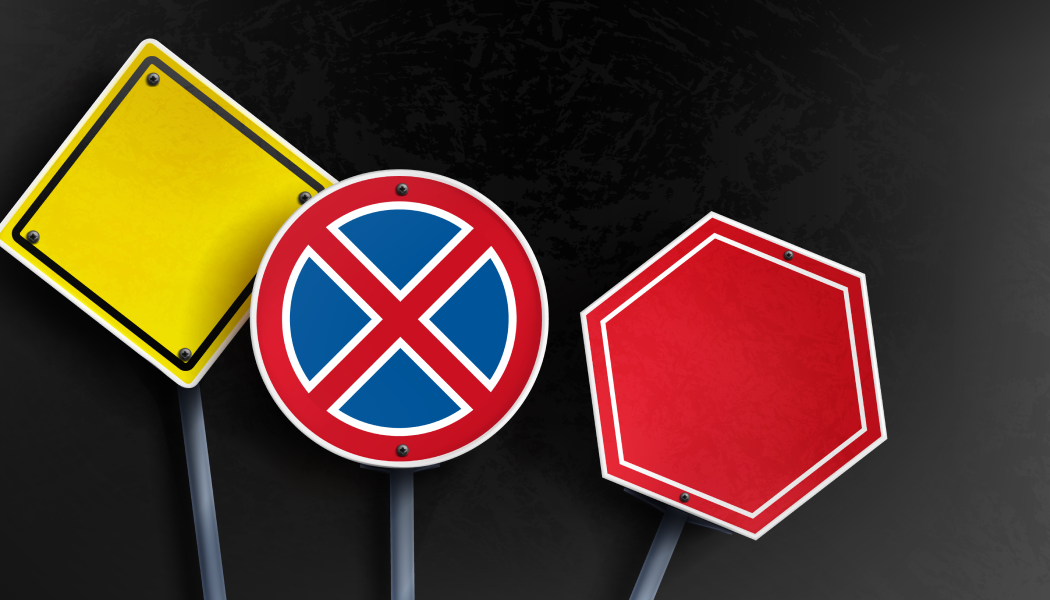by Snigdha Joshi
7 minutes
Pharma Sales Force Effectiveness: Breakthrough Strategies That Convert
Learn how to boost pharma sales force effectiveness with several key strategies like AI tools, upskilling, and optimized performance metrics.

Your sales force is an expensive but highly effective channel for customer engagement. An effective pharma sales force can help you enhance your revenue, customer relationships, communication and product knowledge.
It can help you get better insights into your customer base, giving you a competitive advantage and allowing your company to adapt to market changes quickly. However, in recent years, pharma sales forces have seen hard times.
Global reductions in the sales workforce and increased industry competition have forced pharma leaders to make the most of their few resources. The global pandemic also changed the performance metrics: sales workers had to shift to digital communication channels to meet the same targets.
These disruptions have decreased the effectiveness of the pharma sales workforce. Many leaders who acknowledge these changes seek new strategies to increase their sales force effectiveness. So, we’ve compiled a list of simple techniques to help you improve your sales force effectiveness.

8 Strategies to Improve Sales Force Effectiveness
1. Measure Sales Effectiveness KPIs
Why???
You can’t improve your revenue if your sales workforce is not focusing on the right key performance metrics (KPIs). Many managers don’t revisit performance metrics when the company updates objectives.
This creates a divide as the employees’ performance no longer aligns with the company’s goals, which reduces sales force effectiveness. By redefining performance metrics, your workforce's daily, weekly and monthly targets align with those of the company. Hence, your workforce can deliver sales that actually add value to the company.
How to implement?
Redefine KPIs for based on the company’s quarterly, yearly and overall objectives.
- Set basic metrics (e.g., total revenue and overall interactions with healthcare professionals (HCPs)) and product-specific or category-specific metrics to allow executives wiggle room.

2. Adopt data insights
Why???
Data analytics can help your sales executives prioritise HCPs with high potential for conversion, which optimises their time and effort. Data insights can also help you personalise interactions and identify the right executive for converting an HCP.
Additionally, data-driven insights can improve your sales forecasting efficiency and resource allocation, increasing your sales force's effectiveness.
- How to implement?
- Integrate customer relationship management (CRM) systems and AI data analytics tools to track HCP engagement and market trends.
- Use predictive analytics to identify HCPs most receptive to specific products and provide detailed insights to executives to help them convert HCPs.
3. Train and upskill your executives
Why???
Sales executives need to be more than witty to get sales; they need detailed knowledge of physiology, pharmacology, anatomy, formulations and manufacturing.
A well-trained sales force can effectively communicate your company’s value propositions and build strong relationships. Furthermore, a well-trained executive projects credibility and trust, making HCPs more willing to convert.
How to implement?
- Provide regular in-house training programs on key knowledge areas related to all products.
- Enrol your executives in industry events, workshops, and learning and networking opportunities.
- Use digital platforms to provide courses executives can complete when required for a particular product, while also integrating pharma leadership development frameworks to build a resilient, future-ready sales team.
4. Improve your territory management
Why???
Each territory should have optimal coverage to ensure all HCPs in the area receive appropriate information. Too many executives operating in the same location will lead to redundant efforts, and too few executives will lead to insufficient customer engagement.
By optimising territory management, you can ensure better coverage of key HCPs, increasing the overall sales force's effectiveness.
How to implement?
- Use geographic and demographic data to allocate territories among executives.
- Regularly reassess and adjust territories to ensure an executive does not feel over or under-burdened.
- Implement a dynamic management system that provides executives with detailed information regarding all key HCPs.
5. Use automation
Why???
The reasoning is quite simple: If you automate some repetitive tasks in your executives’ workflows, they can focus on actual value-driving processes. For example, your executives don’t need to spend time on these activities by automating report generation and appointment setup.
Instead, they can spend time interacting with HCPs and making sales. This will improve sales force effectiveness.
How to implement?
- Implement CRM systems with AI-powered chatbots or templates for initial HCP interactions or generic follow-ups.
- Automate appointment scheduling and reminders as well as report generation in CRM systems.
6. Boost personalization with AI in Sales
Why???
HCPs expect the same level of tailored, relevant, and insightful communication as other industries, which makes personalization a key factor deciding pharma sales force effectiveness.
.Personalization allows you to engage with HCPs on a deeper level, forming more meaningful relationships and increasing conversion rates.
How to implement?
- Implement AI tools that provide personalized insights into an HCP’s behavior, allowing you to personalize all communication.
- Create a feedback loop so that AI systems can learn and improve from post-interaction feedback.
Read our article - The Role of AI in Pharma Sales to learn more!
7. Increase collaboration between Sales and Marketing
Why???
Sales and marketing teams often operate as separate entities, which is not conducive to sales force effectiveness. By strengthening collaboration between your sales and marketing teams, you can ensure your company has a unified approach to messaging, targeting and engagement strategies. Furthermore, marketing teams can provide leads and increase conversion rates.
How to implement?
- Use a centralised CRM system where sales and marketing teams can collaborate and share data.
- Establish a feedback loop where the sales team provides feedback on customer preference to the marketing team, which can adjust future campaigns based on realistic insights.
8. Boost your underperforming staff
Why???
Sometimes, despite using the best campaigns, the best CRM system and the best leads, you may not be getting the required conversions, and this may be because of underperforming staff.
Identify underperformers and deal with them: either provide them with the skills to help them reach the target or cut them loose.

How to implement?
- Track key performance metrics to help you understand their efficiency (e.g., time to onboard a client, complete a task, etc.)
- Review the performance of all executives regularly to filter non-performers.
- Host regular meetings to find problems executives face that may result in performance decay—and deal with them!
While these strategies can help you significantly improve your sales force effectiveness, they cannot be implemented into the existing salesforce model.
In this post-pandemic world, people have become accustomed to digital communication. Today, the first question that pops up in anyone’s mind when they book a meeting is, “Can this be a phone call?”
“Can we do this virtually?” is the world’s current motto. So, to fit into this motto, pharma sales teams have to move on from the in-person pitches and to virtual meetings. In brief, they have to adapt hybrid sales models.
Hybrid Sales Models: The Next Norm?
Hybrid sales force strategies blend traditional field (in-person) sales approaches with digital or remote engagement channels. Such hybrid models can increase the sales teams’ flexibility, allowing them to reach more HCPs.
Furthermore, it can also decrease costs by reducing travel budgets and allowing sales representatives more time to engage with more HCPs, increasing the ROI.
Hybrid pharma sales models have several key components:
Traditional sales representatives: These are in-field sales representatives who interact face-to-face with HCPs. These representatives are necessary for areas with poor digital adoption or remote locations. They are also required for speciality, high-value, or sensitive products.
Virtual sales representatives: These representatives engage with HCPs virtually–through phone calls, video calls, emails, messages, etc. These are ideal for low-priority HCPs or products, whose conversion does not immediately matter. Furthermore, these can engage with HCPs who refuse in-person communication.
Digital engagement channels: Digital engagement channels such as email campaigns, webinars, personalized apps, etc. ensure seamless omnichannel communication with HCPs. Often, these channels are used in the initial stages to convert HCPs, after which they engage with virtual or in-field sales representatives.
However, many pharma leaders face challenges in implementing common pharma sales strategies.
Challenges Decreasing Sales Force Effectiveness
Poor product knowledge
As we’ve already said, executives need detailed knowledge about physiology, pharmacology, anatomy, formulations and manufacturing. Without it, they will struggle to answer questions, leading to missed opportunities or spreading misinformation about the product.
All of these factors will lead to weakened brand credibility. Additionally, fostering inclusive leadership within sales teams ensures diverse perspectives that can lead to better communication and stronger relationships with HCPs. Learn more about diversity and inclusion in pharma leadership
Solutions:
- Invest in continuous training courses, workshops, and certifications to ensure executives have in-depth knowledge of all products and technologies.
- Hold in-person role-play scenarios to judge and improve executives’ performance when making sales pitches.
- Use quick-view materials that executives can scan through before or during visits to brush up their knowledge on a topic.
Regulatory restrictions
Regulatory guidelines in many regions restrict the direct marketing and promotion of drugs to HCPs, and non-compliance with these guidelines can result in loss of HCP trust or fines. Consequently, sales executives often face challenges converting HCPs and balancing persuasive selling with regulatory guidelines.

Solutions:
- Provide compliance training courses for all executives so they remain updated on guidelines.
- Provide pre-approved marketing materials to all executives to create sales pitches before visiting HCPs.
- Implement a review process where new executives are shadowed by seniors who ensure their sales pitches remain compliant.
Limited access to HCPs
Most HCPs have busy schedules, and hospitals and clinics limit the number of sales visits HCPs can have. These limit sales executives’ access to HCPs, making it harder to build relationships and get conversions.
Solutions:
- Automate scheduling so executives do not have to contact HCPs to schedule regular visits. CRM systems can track the number of visits HCPs have received and optimise the timetable.
- Adopt digital techniques like online discussions, virtual meetings and webinars to increase sales.
These challenges aren’t impossible to overcome but require executives to think outside the box.
Conclusion
A strong sales force can help your company build strong relationships with HCPs. However, due to market pressures, the pandemic and budget cuts, many companies have fewer resources than they need, which makes it all the more important to increase their sales force effectiveness. This article highlighted seven strategies that can help you steadily improve the effectiveness of your pharma sales.
Implementing these tactics also requires strategic decision-making at the leadership level to align resources and priorities effectively. In addition, we’ve also discussed common challenges and solutions for problems faced in sales force management. If you implement other strategies to increase the effectiveness of your sales force, let us know!
FAQs
1. What is sales force effectiveness?
Sales force effectiveness is a strategy used by companies to improve the performance and productivity of their sales executives.
2. How can pharma sales teams increase effectiveness?
Pharma sales teams can increase effectiveness by improving their product knowledge, using omnichannel marketing, and implementing hybrid communication channels.
3. How is AI reshaping pharma sales?
AI can be used for tailored recommendation, territory management, training, and HCP need prediction.
4. Can CRM systems improve pharma sales?
Yes, they can improve pharma sales by tracking HCP interactions, analysing engagement trends, and allowing collaboration with marketing teams.





